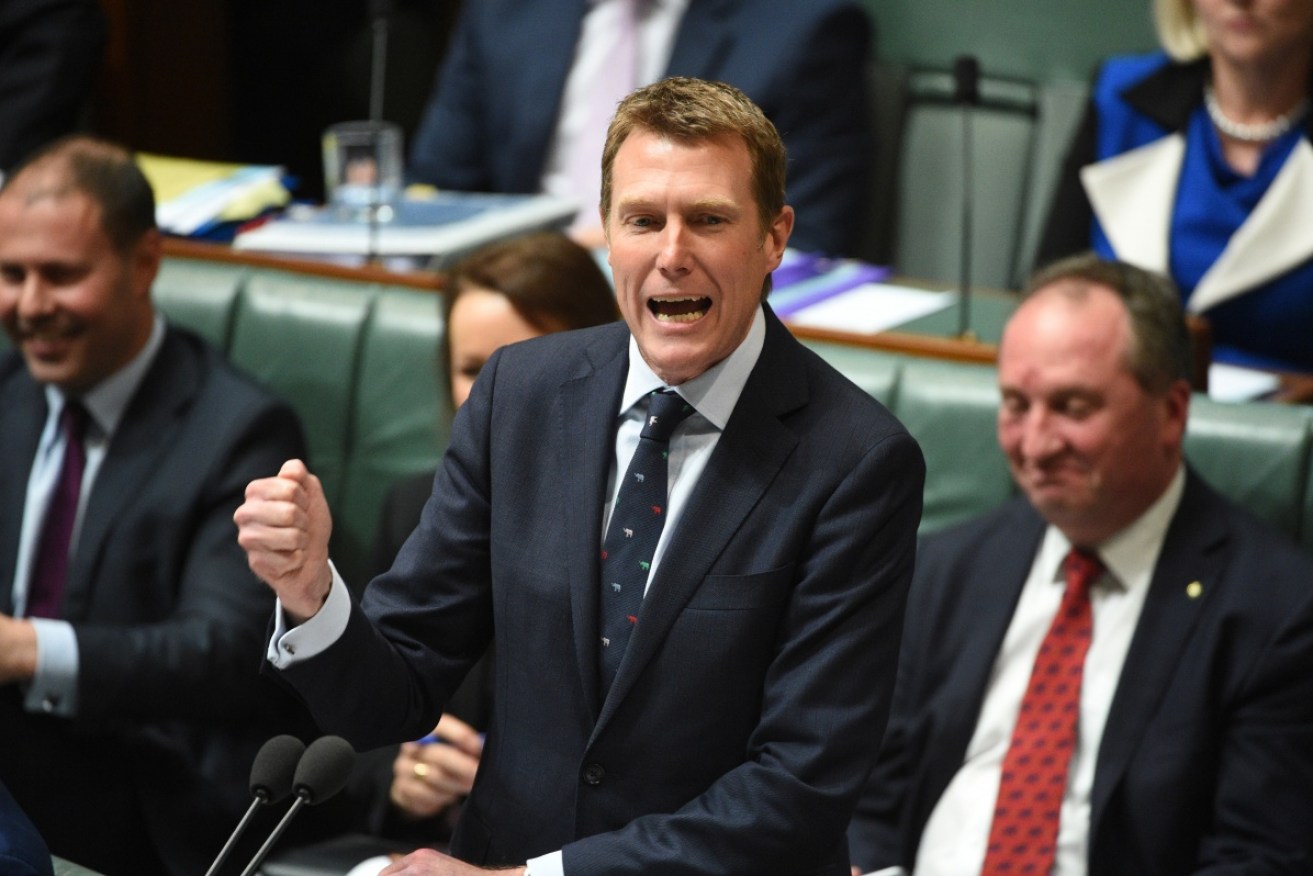‘Revolutionary’ welfare shake-up to target at-risk groups

Social Services Minister Christian Porter says data shows current approach is not working. Photo: AAP
Social Services Minister Christian Porter has declared a “revolutionary change” is needed to break the cycle of lifetime welfare dependency in Australia and prevent the annual $160 billion welfare bill from spiralling into the trillions for future generations.
A major new report by accounting firm PricewaterhouseCoopers (PwC) has crunched 15 years’ worth of welfare data and identified young carers, young parents under 18, and some students as three groups most at risk of getting caught in the welfare trap.
Using actuarial analysis, PwC also modelled their likely future on income support and found a young carer will spend 43 years on welfare, at a cost to the taxpayer of half a million dollars each.
In total, this relatively small group of 11,000 Australians is estimated to cost $5.2 billion over their lifetimes.
The outlook for young single parents is similarly bleak; this group of 4370 Australians is expected to spend 45 years on income support, at a total cost to the taxpayer of $2.4 billion.
Releasing the report, Mr Porter said the data shows that for some, the current approach to welfare was not working and something must be done.
“We already spend $160 billion on direct welfare payments and what this new data is telling us is that for too many people inside the system the money flows but nothing changes and lives are not improving,” he said.
“There is absolutely nothing morally superior or progressive about just applying more money to more of the same approaches where they don’t seem to be working, without trying something different.”
New approach will invest in education, training services
Based on the New Zealand model, the so-called “investment approach” was a key recommendation of former Mission Australia chief Patrick McClure’s 2015 review into the welfare system.

Former Mission Australia chief Patrick McClure 2015 review recommended the “investment approach”. Photo: AAP
“I think it’s a very constructive approach because not only is it saying to a person ‘look, we believe in you, we believe you’ve got potential to access education, training or jobs’,” Mr McClure told the ABC.
“But we’re actually investing services in them to find that pathway.”
At the core of the new approach is the $96 million Try, Test and Learn fund, which states and territories, stakeholders and non-government agencies will be able to bid for to devise programs to break the cycle of welfare dependency.
Those programs will be monitored and evaluated and if they do not work, discontinued.
New Zealand boasts impressive results, having reduced the country’s welfare bill by billions, but critics are concerned the Government there is more focused on saving money than on the long-term interests of the individuals.
Government ‘learning from New Zealand’s weaknesses’
While it will no doubt save money in Australia, Mr Porter insists his Government’s focus is on improving the lives of some of the most disadvantaged groups in the community.
“At the heart of the Coalition Government’s case for welfare reform is that you do not reform according to some budget parameter or some ideology,” he said.
“But you apply individualised reforms at target groups identified at risk of long-term welfare dependence and measure whether or not their lives are actually being improved over time.”
Mr McClure said Australia has “learnt from the weaknesses in New Zealand” and will place a far greater emphasis on measuring the “positive life outcomes” for each individual.
According to Anglicare Australia’s Deputy Director Roland Manderson, early intervention is a fantastic idea in principle.
He added that poverty compounds the problems of getting a job.
“One of the biggest barriers to getting a job is being really poor, not having enough to live on and not having somewhere secure to live.”
“So if you don’t have enough money to get your teeth fixed, have decent clothes, eat properly: well you’re not going to get a job — you’re going to struggle day to day.”
— ABC







